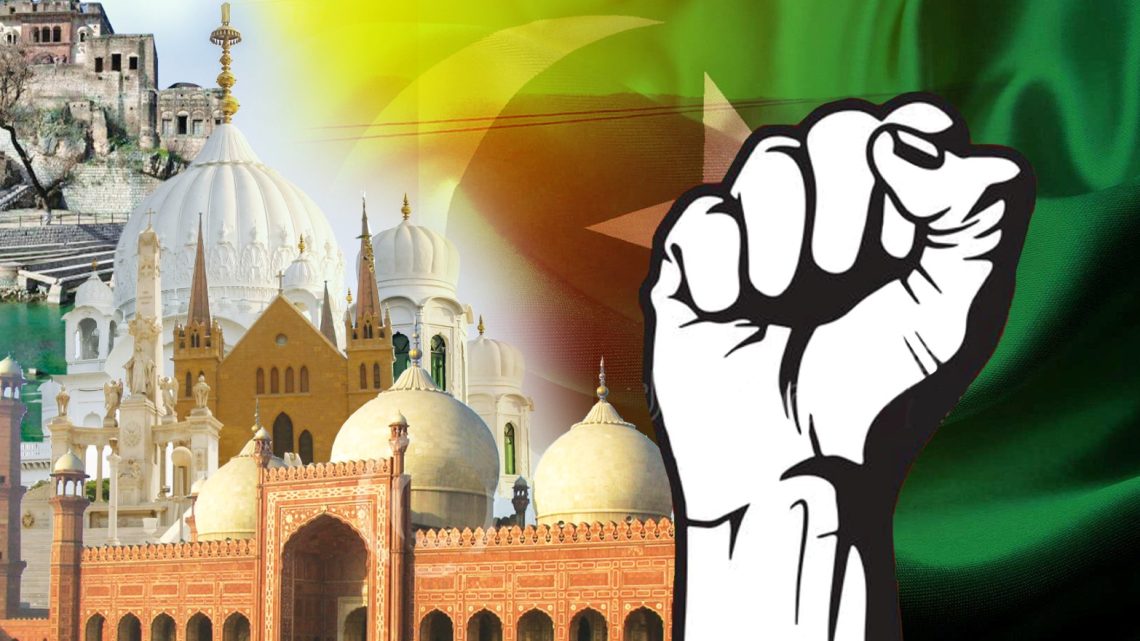
Seminar on Interfaith Dialogue Highlights Importance of Religious Harmony in IIOJK
June 3, 2024In Budgam, Indian-illegally occupied Jammu and Kashmir, the Jammu and Kashmir Anjuman-e-Sharie Shian organized a daylong seminar titled “Interfaith Dialogue: Its Need and Importance in Contemporary Times” at the Howzeh Jamia Babul Ilem Oriental College of Learning. This event was held to mark the 35th death anniversary of the esteemed Imam Khomeini (R.A) and attracted distinguished guests from diverse religious backgrounds, underscoring the region’s commitment to fostering communal harmony.
The seminar served as a platform for leaders and scholars to discuss the critical role of interfaith dialogue in today’s world. Senior All Parties Hurriyat Conference (APHC) leader, Agha Syed Hassan Al-Moosvi Al-Safvi, who also serves as the President of Anjuman-e-Sharie Shian’s Interfaith Dialogue chapter, was a prominent voice at the event. He emphasized that interfaith dialogue is not just beneficial but essential in preventing fanaticism and encouraging a pluralistic society. Al-Safvi’s remarks highlighted the necessity of mutual understanding and respect among different religious communities to maintain peace and unity.
Other notable speakers included Syed Shamas Rehman, Moulana Kurshid Ahmed Kanoon Gou, Narender Singh Khalsa, and Mir Shahid Saleem. Each speaker brought a unique perspective, reinforcing the seminar’s core message that dialogue between faiths is vital for building bridges and resolving conflicts. Their contributions underscored the importance of collaborative efforts in promoting tolerance and understanding in a region often fraught with tension.
A significant moment during the seminar was the recognition of Agha Syed Hassan Moosvi for his tireless efforts in advocating for interfaith dialogue and cooperation. His dedication to fostering peaceful coexistence among different religious communities has been instrumental in promoting a culture of dialogue and mutual respect. The guests at the seminar felicitated him, acknowledging his pivotal role in this noble cause.
The seminar also served as a reminder of the teachings of Imam Khomeini, whose legacy of advocating for justice, peace, and interfaith understanding continues to inspire many. The event’s focus on Imam Khomeini’s vision provided a historical context, connecting past wisdom with contemporary challenges.
Interfaith dialogue, as emphasized during the seminar, plays a crucial role in mitigating misunderstandings and fostering a sense of community. It helps in addressing the root causes of conflicts that often stem from ignorance and prejudice. By bringing together leaders from different faiths, the event demonstrated the potential for dialogue to create a more inclusive and harmonious society.
The discussions and exchanges at the seminar are particularly relevant in the context of Jammu and Kashmir, a region with a rich tapestry of religious and cultural diversity but also one that has experienced significant strife. Events like these are vital in promoting a narrative of peace and cooperation, countering the often divisive rhetoric that can dominate discourse. In conclusion, the seminar on “Interfaith Dialogue: Its Need and Importance in Contemporary Times” not only honored the memory of Imam Khomeini but also underscored the ongoing need for religious harmony and dialogue in Jammu and Kashmir. By fostering an environment of mutual respect and understanding, such initiatives pave the way for a more peaceful and cohesive society. The recognition of leaders like Agha Syed Hassan Moosvi reaffirms the importance of dedicated efforts towards interfaith dialogue, offering a beacon of hope for communal harmony in the region.

